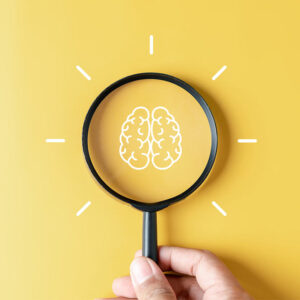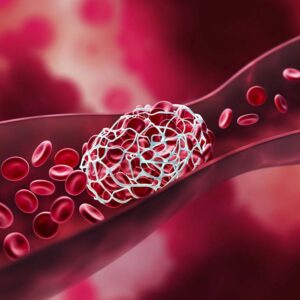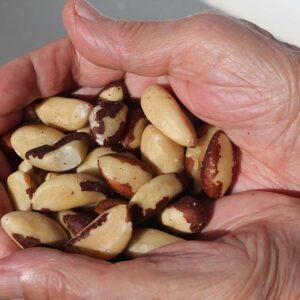
Blood Thirsty Brains
Dear Living Well Daily Reader,
What do your brain and Dracula have in common?
Well, if you’re lucky, an endless thirst for fresh blood.
You see, Australian and South African scientists uncovered some groundbreaking discoveries about the human brain, and one of them was pretty shocking…
Your brain wants to drink your blood. Well, not exactly drink it…
![]() More Blood, More Brains
More Blood, More Brains
The new study, which is a collaboration between the University of Adelaide and the University of the Witwatersrand, found that human intelligence isn’t linked to just the size of the brain, but also to the supply of blood to the brain.
By calculating the increase of blood flow to the brains of our human ancestors, researchers discovered that the human brain not only became larger as it evolved, but also became more of a “bloodthirsty” energy drainer than previously thought.
Lead researcher for the project Professor Roger Seymour of the University of Adelaide explained the findings:
“Brain size has increased about 350% over human evolution, but we found that blood flow to the brain increased an amazing 600%. We believe this is possibly related to the brain’s need to satisfy increasingly energetic connections between nerve cells that allowed the evolution of complex thinking and learning.”
While modern humans have the highest-functioning brains ever, it would make sense that increasing blood flow would help them work at top capacity. As Dr. Seymour put it, “To allow our brain to be so intelligent, it must be constantly fed oxygen and nutrients from the blood.”
In other words, a “bloodthirsty” brain is one that’s working.
There a few easy ways to increase blood flow to the brain:
- Exercise: This doesn’t mean you have to start training for a marathon. Adding just a few extra steps to your routine could be enough to get blood flowing to your noggin.
- Eat chocolate: Research shows that special compounds in cocoa, called flavonoids, can help increase blood flow to the brain. When selecting a chocolate for brainpower, look for one with a cocoa content of at least 70% to get the greatest brain health benefits.
- Consume More Superfoods: Certain foods like nuts, berries, seeds and avocados have high nutritional values and are often referred to as superfoods. Because of their high nutrient density, research suggests they may help you maintain a healthy brain into old age. Drink powders made with superfood blends are also available. They offer all the powerful nutrients of many superfoods, and some even include brain-boosting supplements
So go take a walk, treat yourself to a chocolate bar, eat some superfoods and enjoy your weekend!
Live well,

Natalie Moore
Managing editor, Living Well Daily
Sources
[2] Flavanols in cocoa may offer benefits to the brain
[3] Eat Smart for a Healthier Brain
Written By Natalie Moore
Natalie Moore is a dedicated health researcher with a passion for finding healthy, natural, and science-based solutions. After a decade of direct healthcare experience in western and natural medicine, she was involved in public health research before joining Living Well Daily.
View More Free Articles
Take the SHORTER Path to Dramatically Better Health
Are you tired of fitness gurus preaching the virtues of 5 AM workouts and pushing Olympic-level training regimens? Their narrative can feel exhausting and entirely unattainable. But before you toss in the towel completely, I’ve got news that might just put a spring back into your step. A groundbreaking new study reveals that the key...
Unexpected Perks of Your Coffee Habit Revealed!
We all know that the first cup of coffee in the morning can FEEL like a lifesaver. But what if it might actually BE saving your life? A groundbreaking new study suggests that your daily coffee habit could be protecting you from not just one but multiple chronic diseases. Let’s pour over this fascinating research…...
The TRUTH About Diabetes Drugs and Brain Aging
You’ve probably seen the gushing headlines… Most say something like, “Common diabetes drug protects the brain against aging!” And let’s face it, that sounds fantastic. After all, who doesn’t want to keep their brain young and in tip-top shape? The headlines refer to the results of a new study that suggests the widely prescribed type...
Hidden Smartphone Danger Puts You at Risk
Remember when we thought cell phones were just something for young folks to obsess over? Back when we were convinced they were nothing more than a passing fad? Well, times certainly have changed. Now, most people… including many of us older folks… have jumped on the smartphone bandwagon. Heck, some of us are practically as...
Preserve Your Mobility with “Agile Aging” Exercises
Aging has a way of humbling us. You lose hair where you want to keep it—and often end up growing it where you don’t. With every passing year, your eyesight fades, and your waistline expands. And as your once quick pace begins to slow, you fear developing the dreaded “senior shuffle.” But here’s the thing....
Yes, Lazy Saturday Lie-Ins Can BOOST Your Health
Are you burning the midnight oil during the week and catching up on sleep on weekends? Well, I’ve got some news that might help you feel less guilty about those lazy Saturday mornings. A new study suggests that weekend lie-ins might be doing far more than just helping you feel refreshed. Experts say they could...
Mailbag: 7 Hidden Culprits Behind Your Weight Gain
“Why am I gaining weight, even though I am watching what I am eating?” – Battling the Bulge Dear Battling, Gaining weight when you’re not trying to is frustrating. And it just gets worse as we age… often regardless of our diet. The truth is that various factors can promote weight gain even when you’re...
Popular Artificial Sweetener Linked to Dangerous Heart Risk
Remember when erythritol was the darling of the health food world? Well, this popular sugar substitute might not be as sweet a deal as we were led to believe… A shocking new study reveals a dark side to this widely used artificial sweetener. It turns out erythritol is associated with a dangerous—and even deadly—heart risk....
Cracking the Code on Chronic Inflammation
Inflammation and obesity are the evil tag team at the heart of nearly every major disease we face—from diabetes to obesity. What starts as a normal, healthy process to fend off dangerous invaders can quickly fan into the flames of chronic inflammation… and that includes in your gut. The trouble is almost no one has...
Dreaming of Better Sleep? Your Gut Holds the Key
Do you toss and turn at night? If so, you’re not alone. In fact, if you’re a senior over 65, you join nearly 17 percent of your peers who ALSO struggle with poor sleep quality. But science has uncovered a natural supplement that not only could help you catch more Z’s but can also give...









